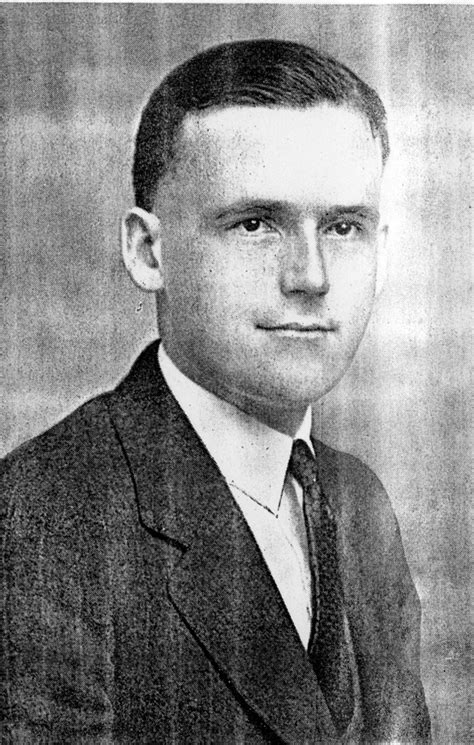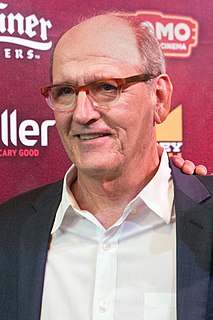A Quote by Philip Pullman
D'you know how embarrassing it is to mention good and evil in a scientific laboratory? Have you any idea? One of the reasons I became a scientist was not to have to think about that kind of thing.
Quote Topics
Related Quotes
It seems to me that there is a good deal of ballyhoo about scientific method. I venture to think that the people who talk most about it are the people who do least about it. Scientific method is what working scientists do, not what other people or even they themselves may say about it. No working scientist, when he plans an experiment in the laboratory, asks himself whether he is being properly scientific, nor is he interested in whatever method he may be using as method.
Any really good scientist is as much an artist as a scientist. All the interesting stuff is found on the edge between knowing and not knowing. I know that sounds like a meditation teacher speaking, but when you're in the laboratory, or you're theorizing about physics, you need to know what you know, but if you can't get out from under that, you won't be able to make that insightful, first-time connection that nobody else has seen before.
I must admit that any favorable mention of the flying saucers by a scientist amounts to extreme heresy and places the one making the statement in danger of excommunication by the scientific theocracy. Nevertheless, in recent years I have investigated the story of the unidentified flying object (UFO), and I am no longer able to dismiss the idea lightly.
Philosophers often think all scientists must be scientific realists. If you ask a simple question like "Are electrons real?" the answer will be "Yes". But if your questions are less superficial, for example whether some well-known scientist was a good scientist. Then, they had insisted that only empirical criteria matter and that they actually did not believe in the reality of sub-atomic entities. Ask "If that turned out to be true, would you still say they were good scientists?" The answer would reveal something about how they themselves understood what it is to be a scientist.
I believe everything is autobiographical. If it's not strictly about you, it's your peers, your obsessions, things that make you angry, or things that you've been watching or obsessing about. Preoccupying you for reasons you don't necessarily know, but it's about you. It says a lot about you. It's like when someone tells you their dream and you sit there going, "Do you realize how much you're revealing about yourself right now?" It's kind of embarrassing.
We became Homo sapiens not that long ago, from the scientific perspective, and we've retained a lot of our beast nature. We've done all these amazing things in terms of our knowledge base and technology, and now we're flying around and using the internet. But we're still very animalistic. So, I think about hierarchies. I think about evolution. I think about how we stack up, how we sit on top of each other. How we pray that we know what we're up to.
People are tempted to think (understandably) that if God were really good He'd never allow any evil in the world at all. But I don't think a perfectly good God would never permit any evil, and neither would others, I wager, if they thought about it. Rather, I think that a good God always prevents suffering and evil unless He has a good reason to allow it. That's the crux.
The physiologist is not a man of the world, he is a scientist, a man caught and absorbed by a scientific idea that he pursues; he no longer hears the cries of the animals, no longer sees the flowing blood, he sees only his idea: organisms that hide from him problems that he wants to discover. He doesn't feel that he is in a horrible carnage; under the influence of a scientific idea, he pursues with delight a nervous filament inside stinking and livid flesh that for any other person would be an object of disgust and horror.
There have been a number of philosophers who have reveled in the dismantling of truth. I think they did so with good ethical motives, and for good philosophical reasons. I can see the sense in what they were talking about; the idea that truth is often claimed by elites in order to further certain agendas. They crowd-out alternative perspectives - particularly those of the powerless. But the undermining of truth contributed - in the weird, indirect way that philosophy contributes to the culture - to a rejection of the idea of truth as having any kind of proper meaning at all.





































